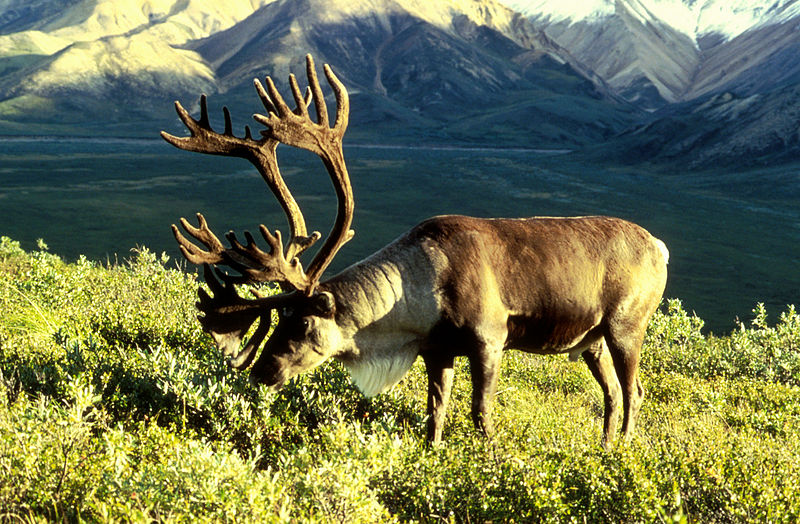We're open daily! View holiday hours
Science News
Climate Change and Caribou
December 31, 2013
by Molly Michelson

Wild caribou (their domesticated brethren go by the reindeer moniker) live in some of the most remote places on the planet—the northern most reaches of Europe, Asia and North America. So it’s no surprise that a recent study determines that climate change will threaten these animals’ future.
However, the recent publication in Nature Climate Change looks not at external factors such as ecosystem and habitat, but at internal factors—genetic markers within the caribou.
A group of international researchers looked deeply within the genetic diversity of the two main populations of caribou—according to the study, “one originating from and confined to Northeastern America, the other originating from Euro-Beringia but also currently distributed in western North America.” They wanted to examine whether genetic diversity was linked to stable habitats.
“When a population loses genetic diversity, they lose the ability to adapt to change,” explains co-author Kris Hundertmark of the Institute of Arctic Biology at the University of Alaska Fairbanks.
Looking at the markers of over one thousand caribou, the team used climate reconstructions from 21,000 years ago to the present to predict where caribou habitat would likely exist and they matched reservoirs of high genetic diversity to areas with the most stable habitat over time.
Lo-and-behold, the Euro-Beringia population, which faced a much more stable climate over the past millennia, had a higher genetic diversity. The Northeastern America population, which saw a diminishing habitat over the years, also saw a great decline in their genetic diversity.
The team then focused on the future, forecasting caribou habitat to the year 2080 using a ‘business-as-usual’ climate model—the Intergovernmental Panel on Climate Change’s A1B model. The outcome is grim, especially for the Northeastern American group, with their lower genetic diversity.
The team predicts that as viable caribou habitat shift north, the southernmost herds will disappear and become more threatened with extinction, losing up to 89% of their current habitat.
“The woodland caribou is already an endangered species in southern Canada and the United States,” says another co-author, Marco Musiani of the University of Calgary. “The warming of the planet means the disappearance of their critical habitat in these regions. Caribou need undisturbed lichen-rich environments and these types of habitats are disappearing.”
Caribou in western North America and Eurasia will also be affected, although to a lesser extent, and have a better chance of retaining what remains of genetic diversity and therefore adaptability to change.
Image: Dean Biggins, U.S. Fish and Wildlife Service